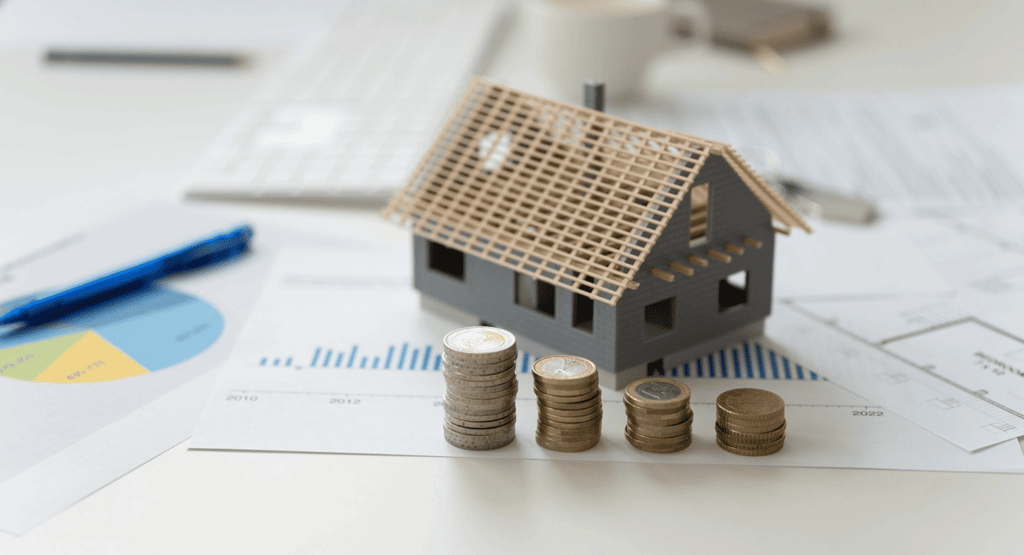Should You Buy a Home During a Market Downturn?
Should you buy a home in a market downturn? Discover the pros, cons, and strategies to help make a smart decision during uncertain times.
10/29/20244 min read


In times of economic uncertainty, deciding whether to buy a home during a market downturn can be challenging yet potentially rewarding. Market downturns often bring lower home prices and reduced competition, creating unique opportunities for buyers who are prepared to take the plunge. However, purchasing in a volatile market comes with its own set of risks, such as unpredictable property values and stricter lending requirements. Understanding both the advantages and challenges of buying during a downturn is essential for making a well-informed decision. In this guide, we’ll explore the pros, cons, and strategies for navigating a home purchase in a down market to help you decide if it’s the right move for you.
1. Advantages of Buying During a Market Downturn
Lower Prices: One of the primary advantages of buying during a downturn is that home prices are often lower. Sellers may be more willing to negotiate, providing you with potential savings.
Less Competition: Fewer buyers in the market can mean less competition, giving you more choices and a better chance of securing your dream home without engaging in bidding wars.
Favorable Terms: In a slower market, sellers are more motivated to close deals, which may allow buyers to negotiate terms, ask for repairs, or even secure seller-paid closing costs.
Potential for Long-Term Gains: If you’re buying a home as a long-term investment, purchasing during a downturn can lead to significant equity gains when the market recovers. Over time, property values typically appreciate, offering the potential for a healthy return on investment.
2. Challenges of Buying During a Market Downturn
Financing Difficulties: Lenders may tighten their requirements during an economic downturn, making it harder for buyers to secure financing. Higher credit scores and stable income become essential for loan approvals.
Market Uncertainty: During a downturn, it’s hard to predict how long prices may remain low or if they might drop further, creating uncertainty around the best time to buy.
Decreased Home Values Post-Purchase: In a volatile market, there’s a risk that property values could continue to decline after you purchase. However, if you’re planning to hold onto the home for years, this may not be a concern.
Higher Interest Rates: While some downturns bring lower interest rates, economic conditions may also lead to rate increases as lenders try to protect themselves from riskier loans.
3. Key Factors to Consider Before Buying
Your Financial Stability: Evaluate your financial situation carefully. During uncertain times, it’s crucial to have a stable income, a solid emergency fund, and a clear understanding of how mortgage payments fit into your budget.
Long-Term Goals: If you’re planning to stay in the home for several years, short-term fluctuations in the market will matter less, as real estate tends to appreciate over time.
Interest Rates and Loan Terms: Research current mortgage rates and available loan terms. If rates are high, consider waiting or exploring adjustable-rate mortgages (ARMs) if you’re confident rates will fall shortly.
Market Conditions in the Area: Some areas are more resilient to downturns than others. Research neighborhoods where property values are less likely to decline sharply and consult local market experts to make an informed decision.
4. Strategies for Buying During a Downturn
Get Pre-Approved: In uncertain times, securing financing can be more challenging, so it’s best to get pre-approved for a mortgage before starting your home search. This also shows sellers you’re a serious buyer.
Focus on Stable Neighborhoods: Research neighborhoods with stable demand, good infrastructure, and amenities. Properties in established or developing areas are likely to hold their value better over time.
Negotiate Wisely: Use the buyer's market to your advantage by negotiating on price, repairs, and closing costs. In a downturn, sellers are often more willing to compromise to close the deal.
Consider a Fixer-Upper: Downturns can be a great time to find undervalued homes needing renovation. If you’re willing to put in the work, a fixer-upper can offer long-term equity growth potential.
Lock in a Favorable Interest Rate: If interest rates are expected to rise further, consider locking in your mortgage rate as soon as possible. Alternatively, if rates are high and expected to drop, you may consider an adjustable-rate mortgage with plans to refinance when rates decrease.
5. Potential for Future Gains
Buying a home during a downturn can be a smart investment, especially if you’re planning to keep the property long-term. Historically, property values have rebounded after economic downturns, and buyers who invest during these times often experience significant equity growth. A downturn provides a window to purchase at a potentially lower price, increasing the likelihood of substantial returns when the market recovers.
6. Risks and Mitigation
Decline in Value Post-Purchase: The value of your home could drop in the short term if the market continues to decline. However, you can mitigate this risk by ensuring you’re financially stable and prepared to stay home for several years.
Increased Costs: Be prepared for potential unexpected costs related to the economic environment, such as higher interest rates or additional fees from lenders. Shopping around for the best rates and working with experienced mortgage professionals can help mitigate these risks.
Uncertain Economy: An economic downturn may impact job stability, so having a secure income source and an emergency fund is essential.
7. Is Buying During a Downturn Right for You?
Ultimately, deciding to buy during a downturn depends on your personal and financial situation. Consider whether:
You’re financially stable with a steady income and a robust emergency fund.
You’re prepared to stay in the home for several years, even if the market remains uncertain.
You’re comfortable with the potential risks, including short-term fluctuations in property values.
You’re confident in the area’s market resilience and long-term appreciation potential.
Buying a home during a market downturn can be a strategic move with long-term financial benefits, provided you’re prepared for potential risks. Lower prices, less competition, and the potential for equity growth make downturns appealing to savvy buyers. However, challenges like financing difficulties, possible declines in home value, and market uncertainty require careful consideration. If you have financial stability, a long-term perspective, and are comfortable with market fluctuations, purchasing a home during a downturn could be a rewarding investment. By approaching the process strategically, you can turn market challenges into opportunities, positioning yourself for future success in real estate.
Hello, I’m Danny Bertolini, Vice President at Meadowbrook Financial Mortgage Bankers Corp.
Useful Links
Subscribe to our newsletter
© 2025 Danny Bertolini. All Rights Reserved. | Meadowbrook Financial Mortgage Bankers Corp. | NMLS #167666
